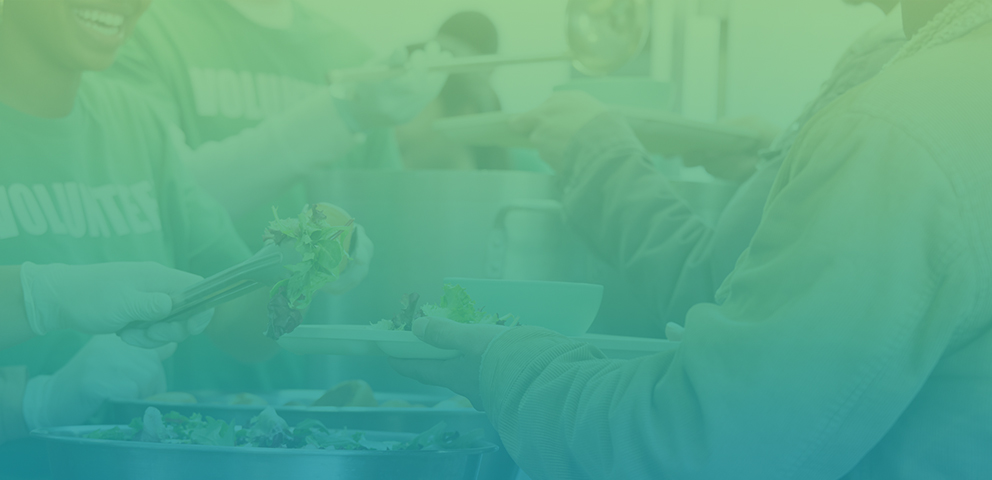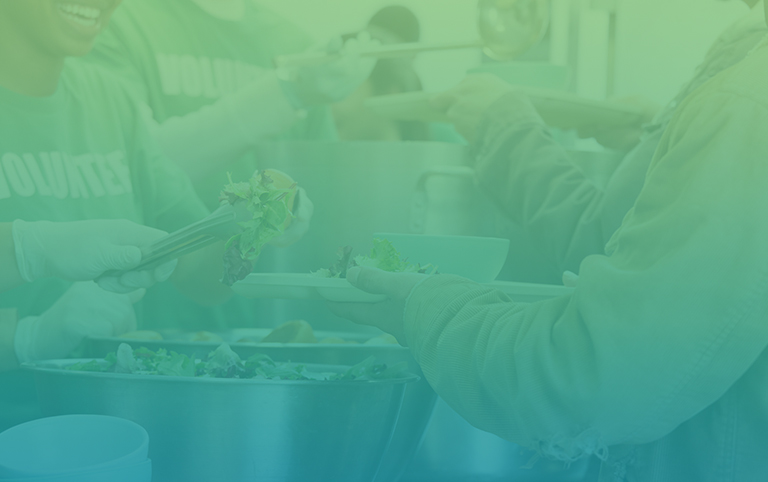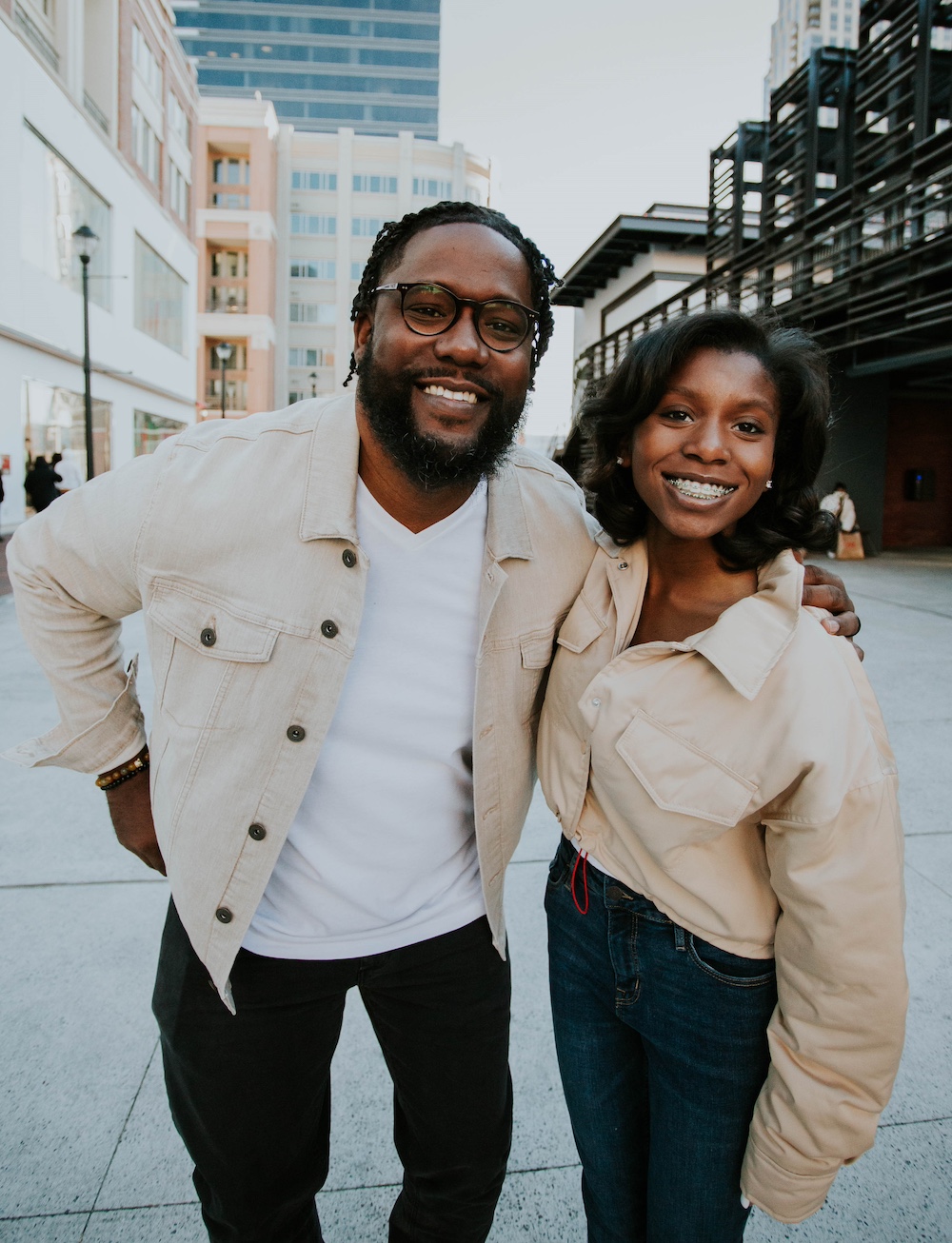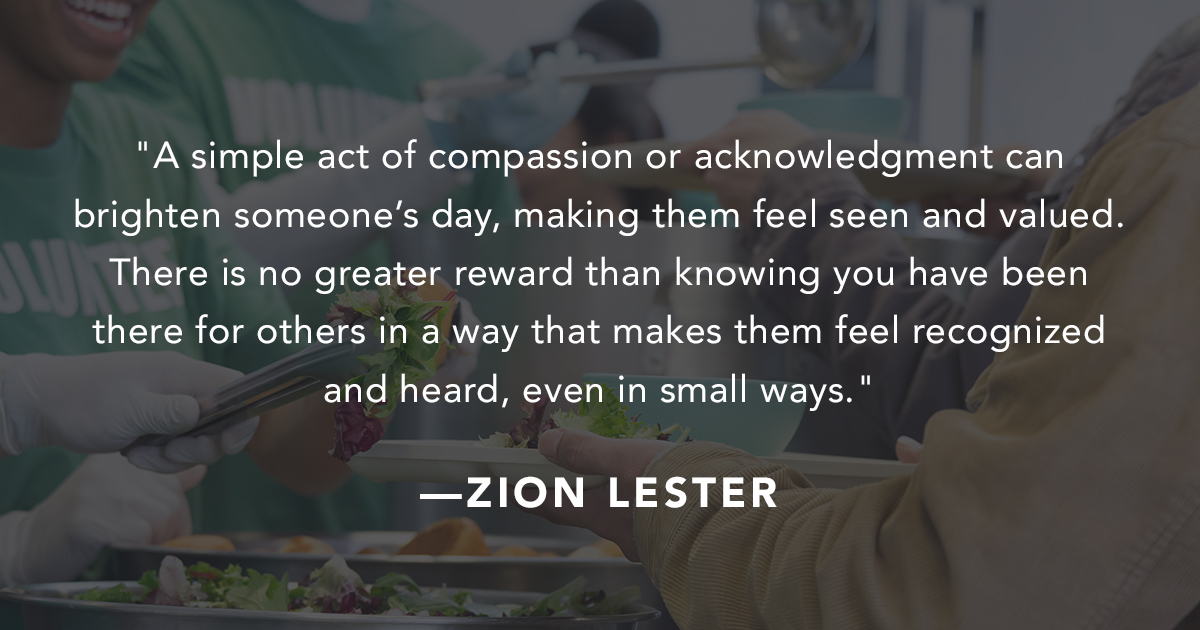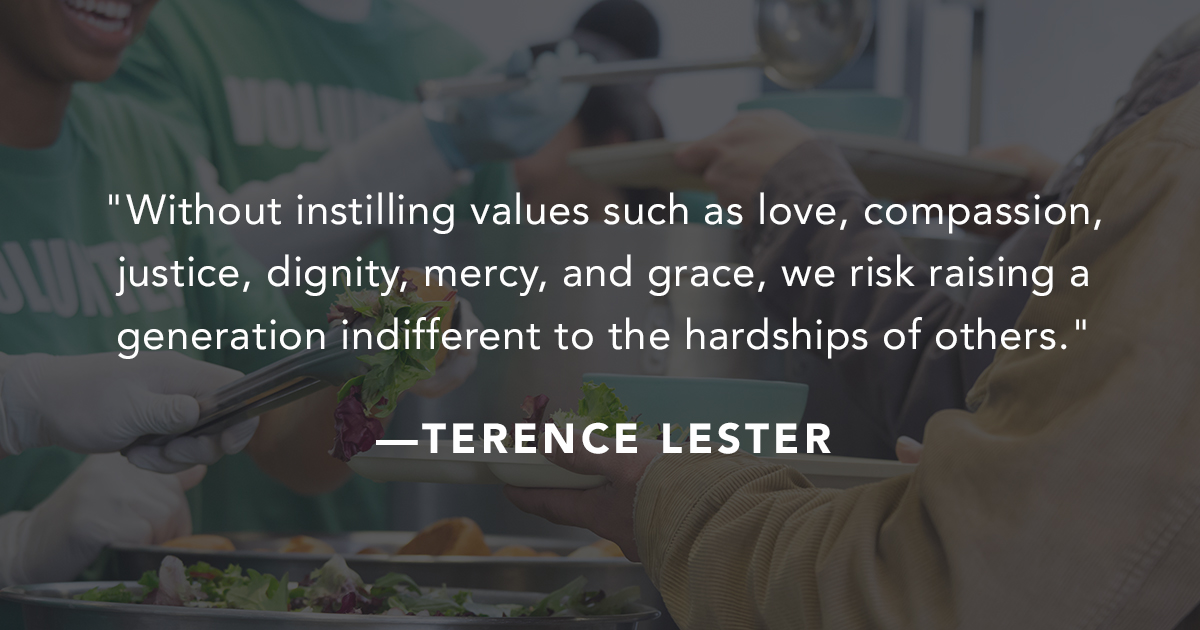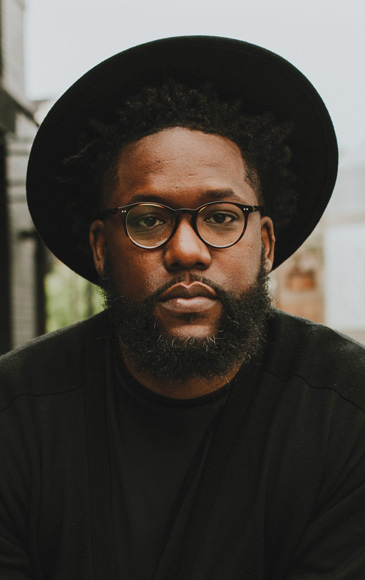How Terence & Zion Lester Are Mobilizing Youth to Serve Their Communities
Youth and teen activism are increasingly shaping conversations and driving change on a global scale, from climate action to social justice movements. In this interview with Terence Lester and his daughter, Zion, we see how parents and caregivers can mobilize the next generation to serve by fostering values of service and empathy from a young age.
Want to inspire your kids to serve their community? Read Zion Learns to See, the IVP Kids book Terence and Zion wrote together.
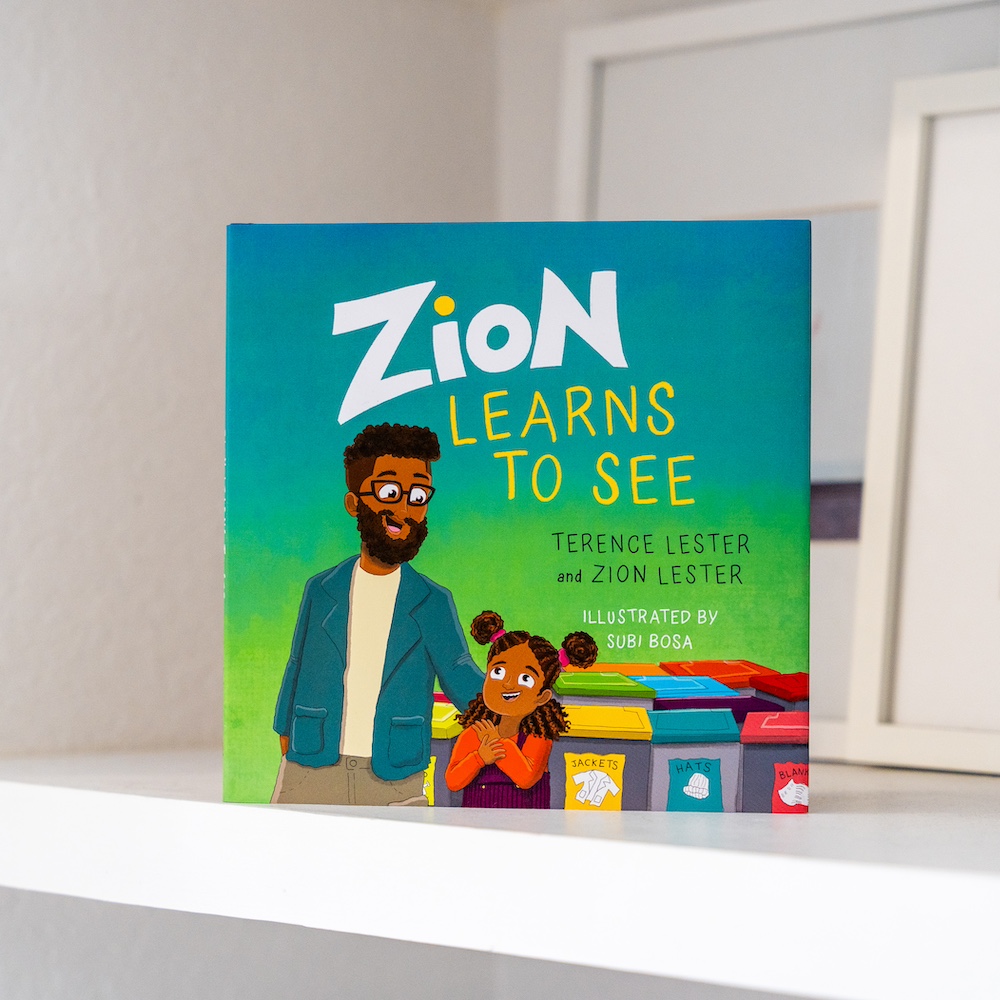
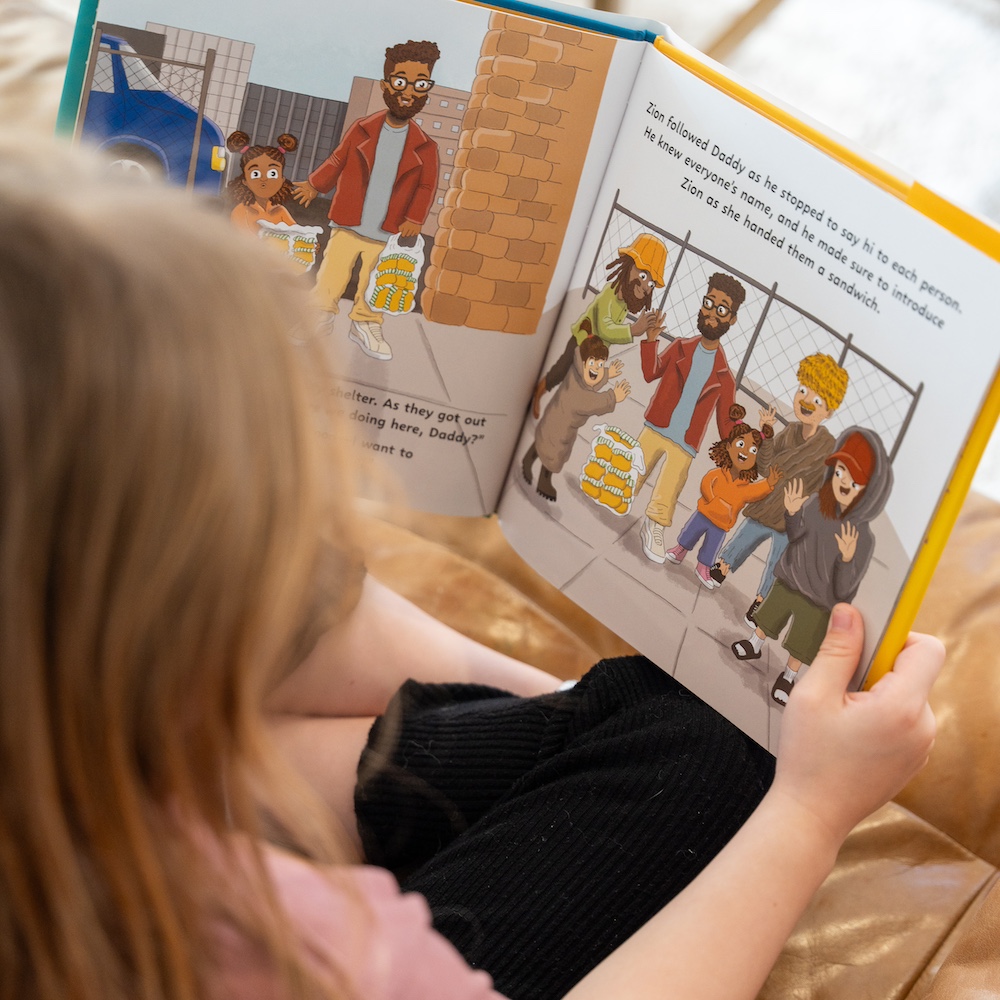
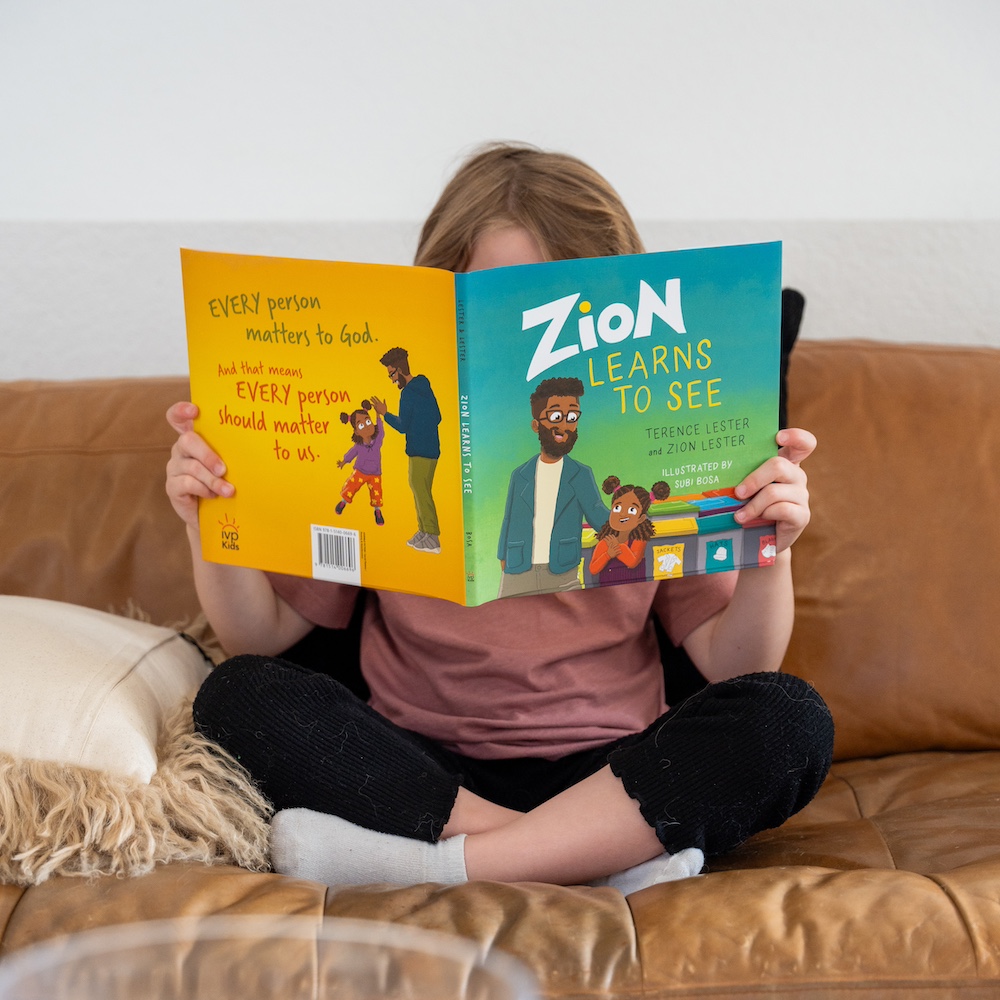
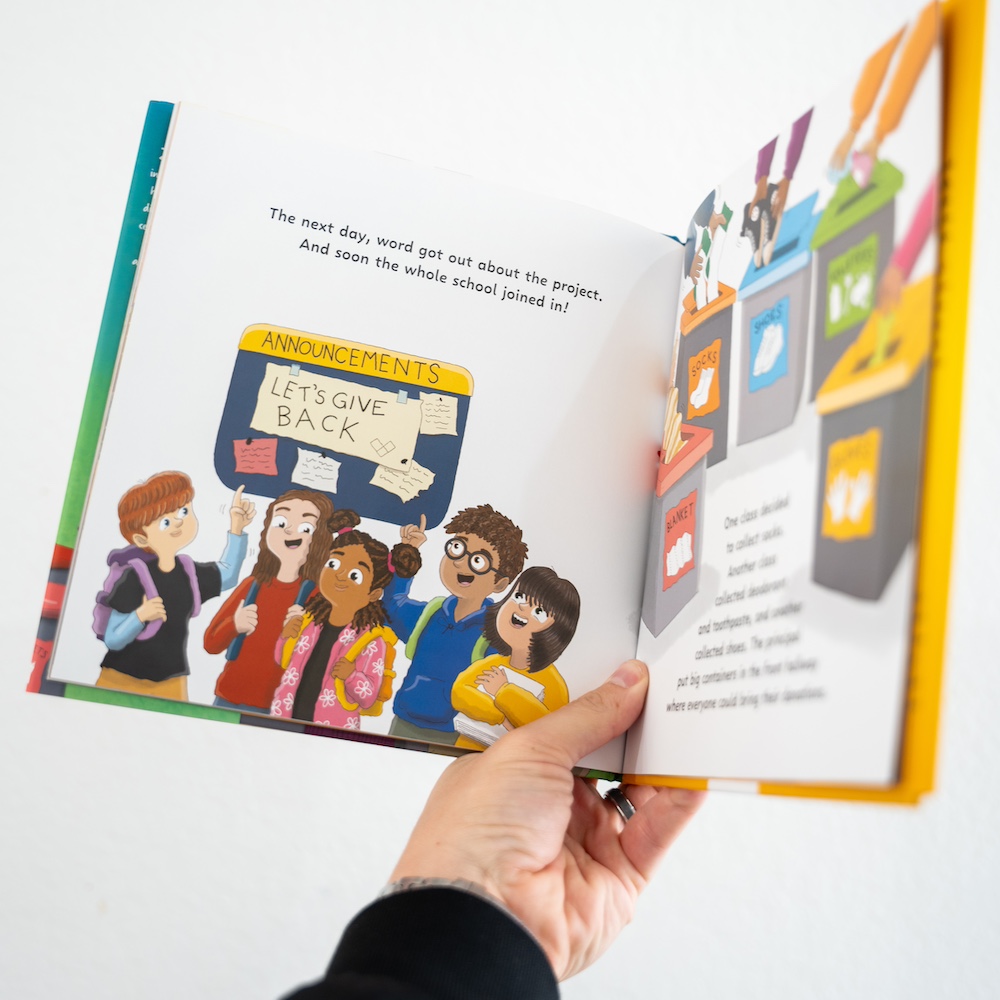
Zion, how did you first come to learn about homelessness?
Zion Lester: My parents involved me in serving the community and those experiencing homelessness when I was as young as eleven months. I would be held on my mom's hip while she served people with clothing, meals, and resources. As I grew older, I continued to be around my parents and those who came to volunteer with the organization that my parents founded, Love Beyond Walls, helping carry items, meeting people from the community, and being part of the community.
Serving with them made it easy for me to learn about issues like poverty and homelessness because I was part of the community and met the people faced with these challenges. I also learned about homelessness from a very young age by being around my dad and listening to him talk about it, and then actively showing kindness to those who were faced with homelessness. Our family's constant involvement in serving the community helped me to see those faced with homelessness as community members. I learned to see everyone, regardless of whether they have an address, with dignity by being in the community. These experiences my parents provided became my inspiration and made me realize that I can contribute in various ways to make a difference.
How have you learned about serving from your dad?
Zion: Growing up, I observed my dad's sacrifices, selflessness, and generosity toward the community of people who are often overlooked. Witnessing his actions up close and assisting him shaped my worldview and my perception of those in need. Participating in campaigns, projects, and serving alongside my dad reinforced the idea that I, too, could embody selflessness, show compassion, and nurture a heart for individuals in need or in vulnerable situations. These experiences highlighted the importance of serving those in need, emphasizing that individuals facing hardship are just as valuable as anyone else.
Being young, I've noticed how readily people can misjudge those who are poor or experiencing homelessness, rather than recognizing them as humans and integral parts of our community. I believe that truly understanding someone's story requires taking the time to connect with them and listening to their experiences. Simple gestures of kindness, such as inquiring about someone's day or offering a friendly smile, can significantly impact someone's life.
Terence, what has Zion taught you about serving?
Terence Lester: Zion has shown me that children can make a significant impact, regardless of their age, and that it doesn't take much to effect change. When Zion was in the second grade, she became deeply engaged in a campaign we were running with Love Beyond Walls to raise awareness about homelessness across the country.
The campaign, known as MAP16, involved me walking from Atlanta to Washington, DC, all the way to the White House. Zion collected newspaper clippings that highlighted our efforts and shared them with her second-grade teacher. Her teacher seized the opportunity to educate the entire class about homelessness. Zion, feeling inspired, organized a loose change collection in her class to support people experiencing homelessness. The students raised fifty-two dollars. While this may not seem significant, it was impactful because it unified the students and teachers around a shared goal.
This experience showed me that children are capable of identifying problems and taking direct action to solve them. Adults often postpone taking action due to the influence of commentary from talking heads, debates, and the barriers of skepticism and stigma. However, Zion's actions proved that age doesn't matter when it comes to bringing people together and making a difference, even if it involves a class full of second graders. Like I always tell Zion, if you notice something wrong and feel the urge to help, it's important to step forward and participate.
Zion, in what ways have you helped serve people experiencing homelessness?
Zion: I remember my dad once said in a talk, "I do not use service as punishment for my children." What he meant was that service is a core value in our family, so helping others has always come naturally to us. It's as routine as going shopping, dining out, or engaging in everyday activities because it's part of our identity.
From a young age, I've been actively involved in serving those experiencing homelessness through my dad's organization, participating in various projects like organizing collections, conducting food giveaways, setting up closets in schools, and discussing the issue with peers.
I've also joined in on several campaigns my dad organized to raise awareness about homelessness. Serving has never felt like a burden to me, unlike how some parents and caregivers might use volunteer work as a form of punishment. Instead, it brings me joy, especially when I see the gratitude and happiness on people's faces as they receive help and recognition.
What would you say to others in your generation about the importance of serving and of learning to see?
Zion: My parents have always taught me that we love our neighbors as ourselves and we put God first. In my view, loving others is an act of service, and serving is crucial because it extends God's love to others and treats people with dignity, affirming their worth regardless of their circumstances.
A simple act of compassion or acknowledgment can brighten someone's day, making them feel seen and valued. There is no greater reward than knowing you have been there for others in a way that makes them feel recognized and heard, even in small ways.
Terence, what would you say to parents and caregivers about the importance of teaching kids to serve and learning to see?
Terence: I'll never forget a moment at Love Beyond Walls when we were installing closets in schools for students lacking access to clean clothes. While working with the school counselor and community liaison, I witnessed a young girl being escorted to the principal's office in tears, upset because she was being ridiculed for wearing the same uniform every day.
The school mandated uniforms, but her family's financial constraints meant she had only one, leading to her being bullied by other students for not being able to wash it frequently due to lack of access to laundry facilities.
As I left the school that day, deeply moved, I contemplated how we could expand our closet initiative and educate other students to be more empathetic and kinder. It became clear that we needed to teach them about the various challenges their peers might face at home, a lesson that ideally should come from their parents and caregivers.
This experience underscored the importance of instilling compassion and understanding in children from an early age. Without instilling values such as love, compassion, justice, dignity, mercy, and grace, we risk raising a generation indifferent to the hardships of others.
Practical Ways Families Can Serve Their Community Together
Zion, what are five ways that young people can get involved to make a difference in their communities?
My generation has a lot of power because we know how to use technology and we have a lot of information. But we need to start with simple, practical things to make a difference.
Here are five ways young people can help:
- Get involved with groups that are doing good work, like Love Beyond Walls, which my parents started.
- Start your own projects to tell people about important issues.
- Do small, kind things for others every day and educate yourself on injustices that others face.
- Start an organization. Look at what my dad did as an example and start a business that helps people who are poor or unhoused, just like Love Beyond Walls.
- Give money to organizations that are really helping communities get better.
Terence, what are five ways that parents and caregivers can get involved with their kids to make a difference in their communities?
When parents and caregivers think about doing community projects or services with their kids, it's important they understand the big impact they can make together.
Here are five practical steps parents can take:
- Talk with your kids about what's happening in your community or the world to help them understand the issues people face.
- Volunteer together at local places like nonprofits, shelters, food banks, or community centers. This is a great way for families to bond and for kids to learn about empathy and giving back.
- Get involved in school projects. Parents and caregivers can work with their child's school to organize drives for things like socks, toiletries, or coats, helping students learn about teamwork and the joy of helping others.
- Lead a community project or get involved at church. Families can start their own initiatives, like setting up a pop-up library or collecting items for those in need, showing kids how they can take action on issues they care about.
- Share skills and passions. Kids and their parents and caregivers can explore their talents together, whether it's art, music, or something else, and think about how these skills can help others. This encourages kids to use their interests to make a real difference in the world.
These steps can help parents and caregivers guide their children in understanding the importance of helping others and being part of a community.



